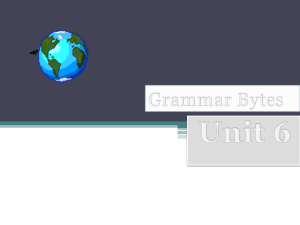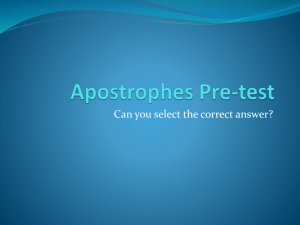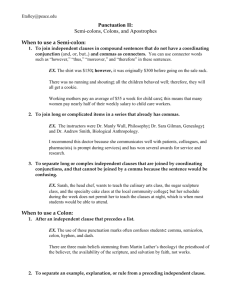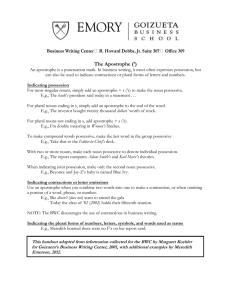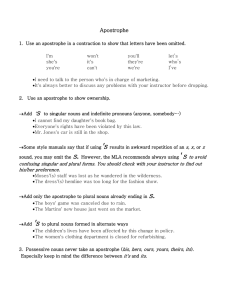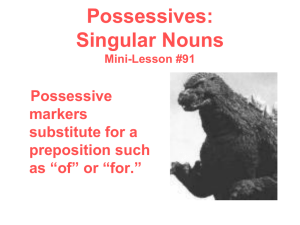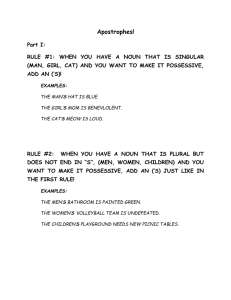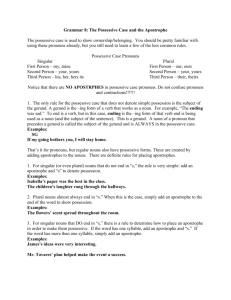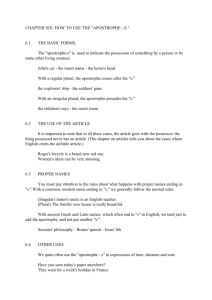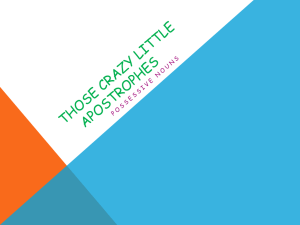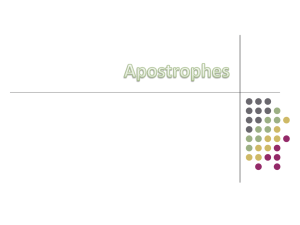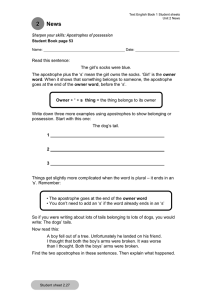Apostrophes
advertisement
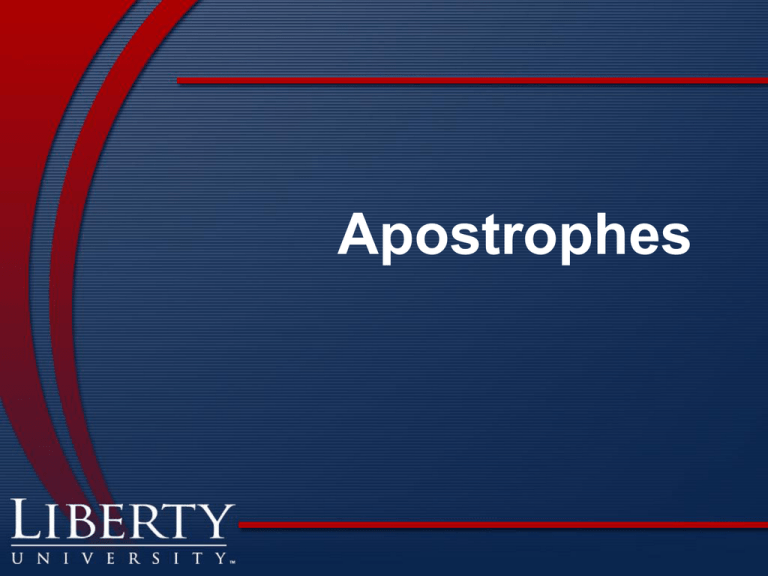
Apostrophes An Explanation The apostrophe is used to indicate: -possession -contractions -the omission of one or more letters -plural numbers Possession • Add –’s if the noun does not end in –s, or if the noun is singular and ends in –s – Ex: The musician’s guitar was lost; Louis’s car was stolen. • Add –’ if the plural form of a noun ends in –s – Ex. The students’ activities had to be rescheduled Possession • Add –’s (or –s’) only to the last noun to show joint possession; however if you need to indicate individual possession add –’s to all nouns. – Ex. Maria and Joseph’s new car is blue; Maria’s and Joseph’s expectations were quite different. • Add –’s (or –s’) to the last element in a compound word. – Ex. Her sister-in-law’s surgery was successful. Possession • Add –’s to indefinite pronouns that are possessive. – Ex. Everyone’s medical insurance plan was reviewed. Contractions The apostrophe is used to replace missing letters in a contraction. Example: • It’s a shame that Jonny can’t make it to the concert tonight. It’s stands for it is. Can’t stands for can not. Conventional Uses The apostrophe is used to pluralize numbers, letters, and abbreviations. • 8’s • J’s • IOU’s Misuses Do NOT use an apostrophe in plural nouns, singular verbs, or possessive personal pronouns: a. The plural of “Jones” is “Jones” b. The singular verb “breaks” remains “breaks” c. His, hers, its, ours, yours, theirs, and whose are all possessive forms of he, she, it, we, you, they, and who. (They never take apostrophes.) Misuses cont’d Do NOT use an apostrophe to form the possessives of personal pronouns. a. Incorrect: it’s toes, your’s b. Correct: its toes, yours Do NOT use an apostrophe to form plurals of nouns a. Incorrect: book’s are, the Freed’s b. Correct: books are, the Freeds
